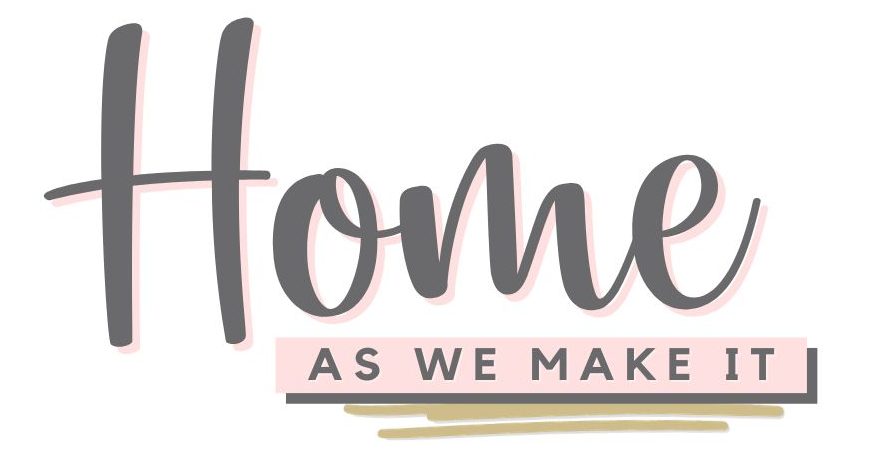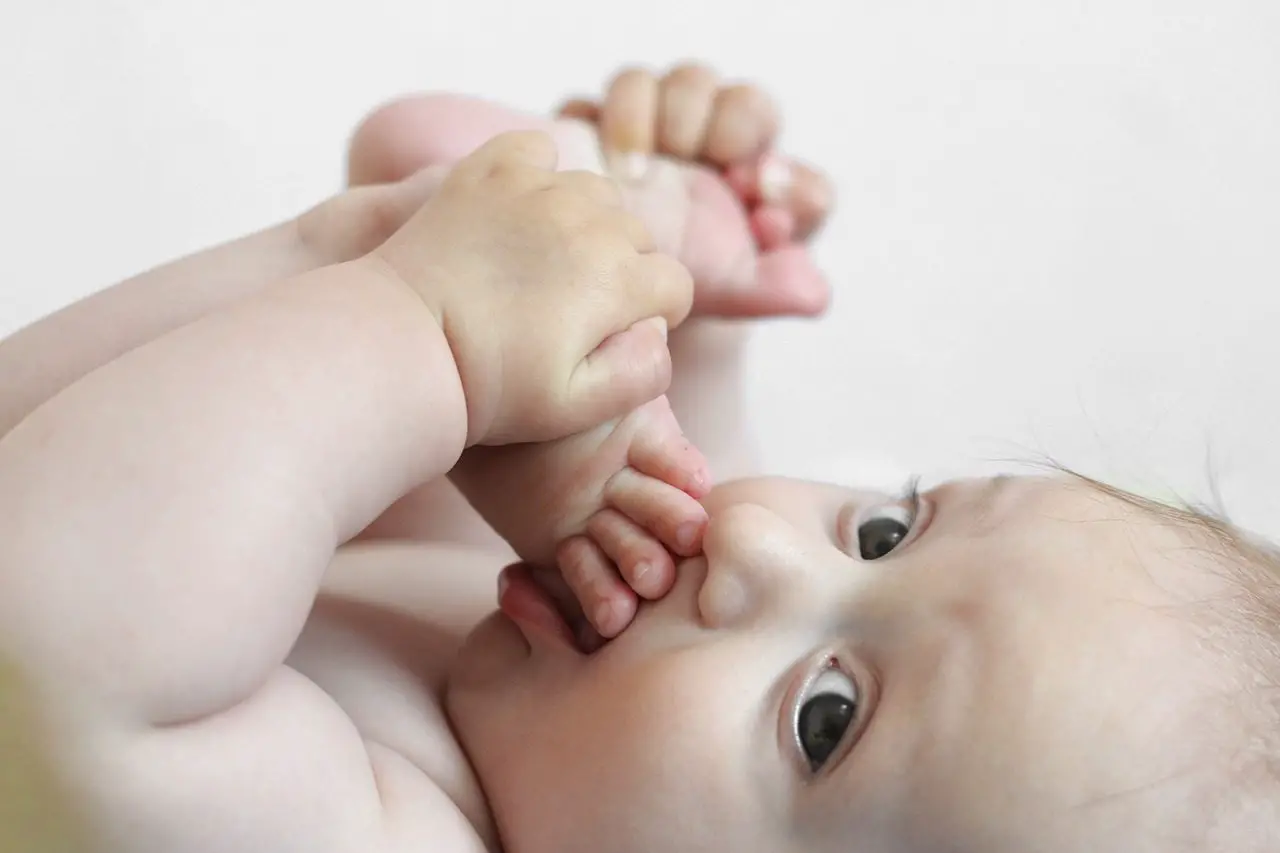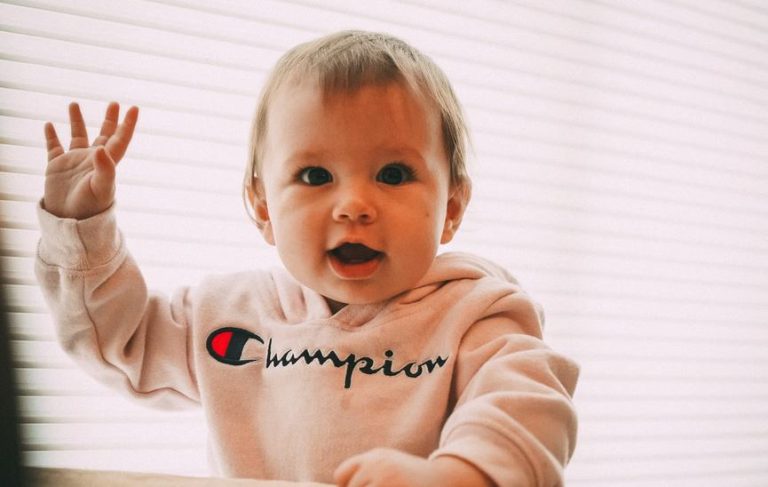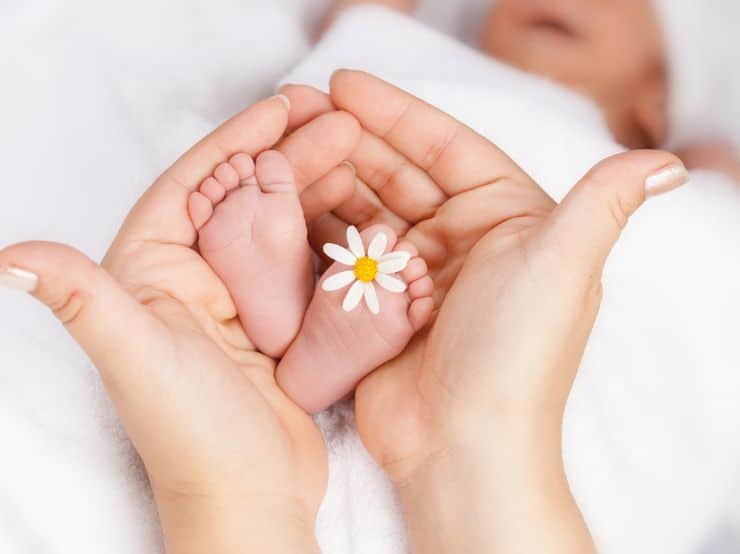2 Months Baby Development. What you need to know
3-month-old baby development →
Note: This post may contain affiliate links, which means if you buy from my link I might make a small commission. This does not affect the price you pay. See the full affiliate disclosure here.
Does it feel like your baby grows fast so rapidly that it’s almost hard for you to keep up with all that is new? It feels like yesterday when you were still pregnant, and now your little one is looking in your eyes lovingly and smiling.
For these short two months, they have changed so much that it’s only natural to wonder what is the next great thing to come. So to decrease the suspense, here is what you can expect from the 2 months baby development.
What to expect from 2-month-old babies?
Physical growth
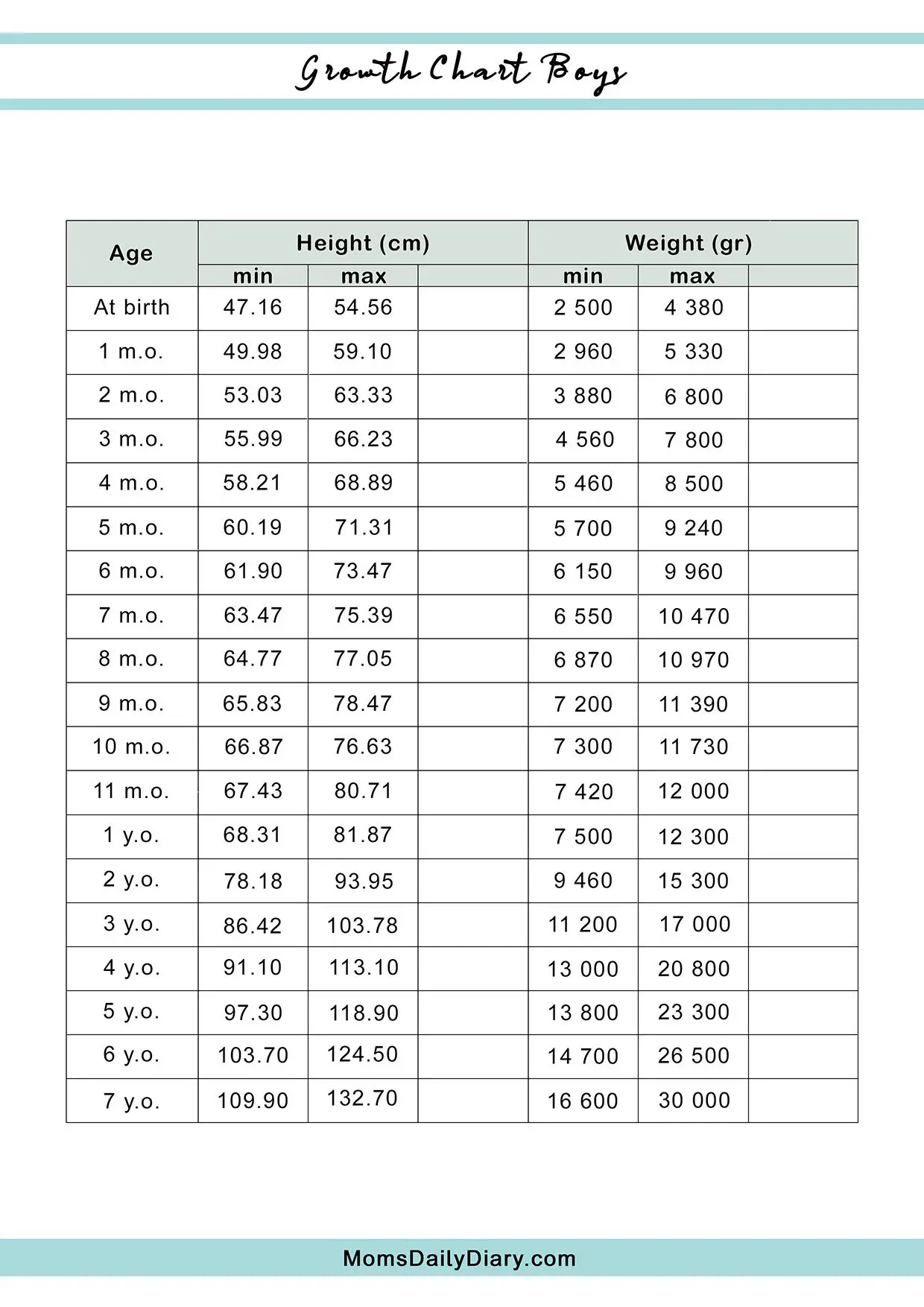
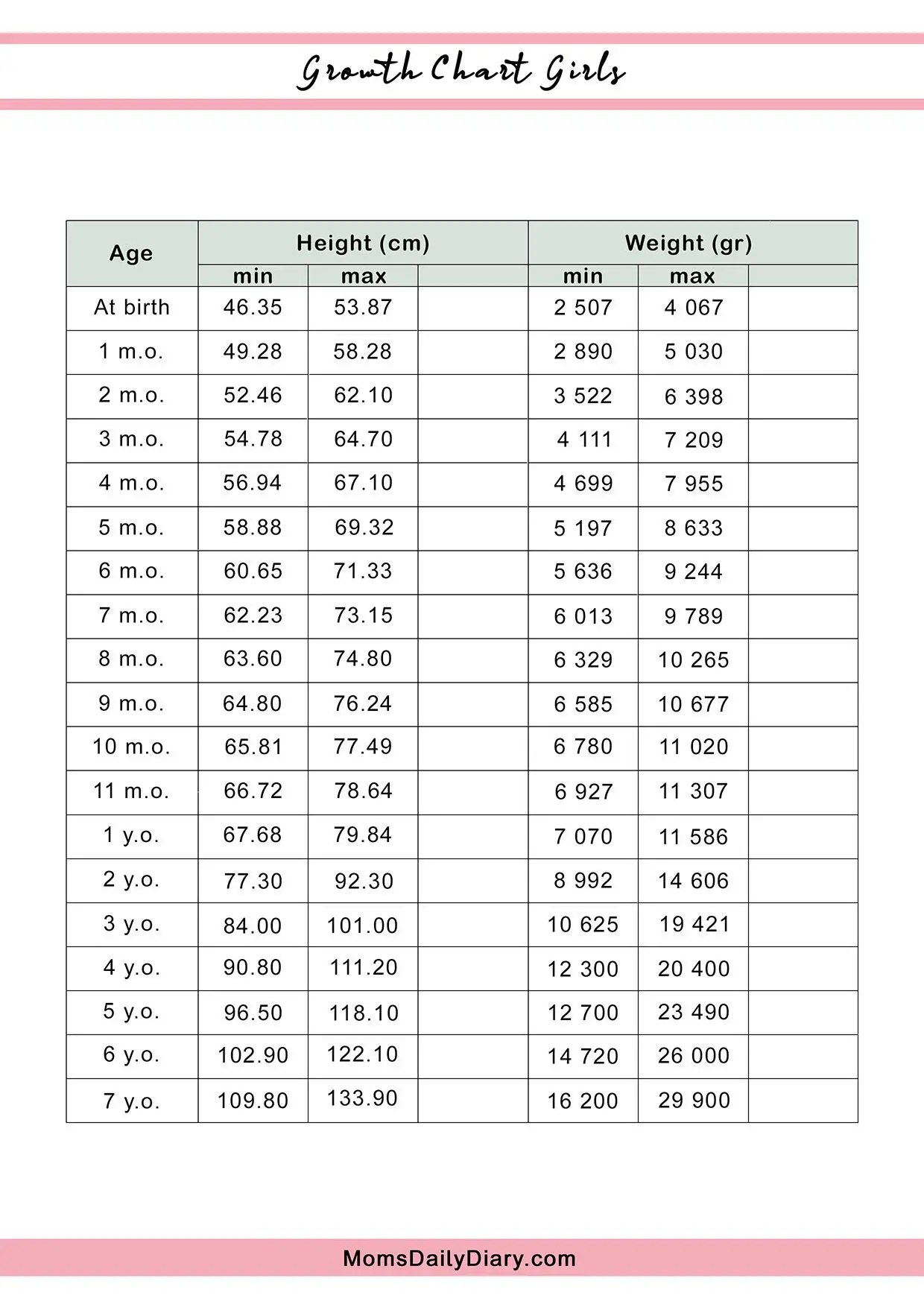
Just like the last time, at your 2-months check up your baby’s doctor will take their measurement, including length, weight, and head circumference.
Your baby will most likely have added 3-4 cm (1.2-1.5 in), and about 1/2-1 kg (1-2 lb). What is most important is that they grow at a steady rate compared to the previous check-ups.
They may even look a bit chubby right now, especially around their legs. Don’t worry, this is completely natural because their muscles are just beginning to develop. Your baby will “get in shape” when they start to move more and crawl around.
But have you noticed that your little one is not only taller now, but also quite different. Just check one of their photos from their very first month and compare it to their cute face now. Don’t they start to look more and more like young children?
And just wait to see how much they’ll change by the time they reach 1 year! So if you haven’t done so by now, you may want to start capturing these moments right away.
Sleep
In general, 2-month-old babies usually sleep for about 15-16 hours a day, with 3-4 daytime naps.
Around the 12th week mark, most babies finally start to sleep “through the night”. This means that you can finally expect the end of all these sleepless nights by the end of this month or soon after your baby turns 3 months of age.
However, keep in mind that a breastfed baby could have a very different schedule than a formula-fed one. Formula-fed babies usually sleep a while longer. Breastfed babies, on the other hand, tend to wake up every 3-4 hours for feeding even at night.
Feeding
Two-month-old babies still require breast milk or formula only. Their needs vary and they may require anywhere from 350 ml to 700 ml a day (12-24 oz).
If you’re feeding your baby formula, their doctor should be able to advise you on the proper amount for their particular case.
It may also be time to check for expired formula cans and supplies. Bottles, bottle nipples, and pacifiers need to be replaced on a regular basis. So if you’re using them daily check if they need to be replaced.
In the old days, some people believed that 2 months was enough to start introducing solid foods or fruit juices. It is not! Please remember that at this age your baby needs breast milk or formula only.
Motor skills
Day after day, your baby is getting more and more active. Their arm and leg movements should become even smoother now and they should be able to hold their head for longer periods of time.
At 2 months, your baby may also start exploring their body. The first step to this is finding their own hands and trying to put them in their mouth.
Don’t worry, they’re far away from a thumb-sucking habit. They’re just exploring and learning to comfort themselves.
While your little one may start to actively bat their hands towards the toys on the play mat, they are still not coordinated enough to be able to grab a toy of their choosing. Help them by holding the toy in front of them or putting it in their hands.
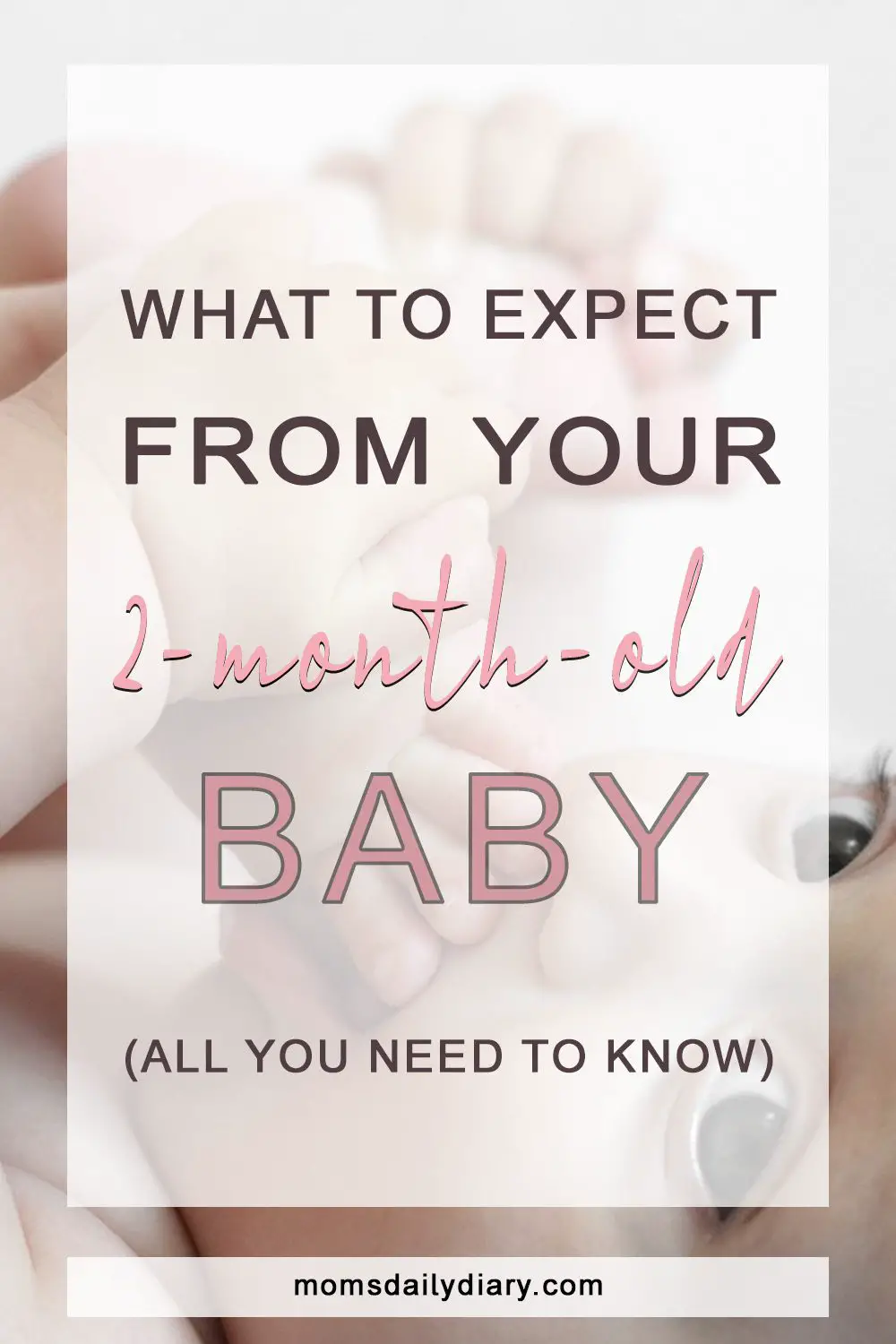
How do you play with your 2-month-old baby?
Tummy time
Tummy time is the best exercise for your little one until they can hold their head completely steady. And it can be beneficial to pretty much every aspect of a 2 months baby development.
So grab the playing mat or a pillow, some bright-colored toys, and try to enjoy tummy time together daily.
Massage
Since your baby is not yet using their rapidly developing muscles actively, daily massages are still recommended.
You can do this by stretching their arms and legs gently, helping them “ride a bicycle” or clap, and massaging their neck, shoulders, arms, and legs.
Tactile toys
Babies learn faster than you can imagine. Probably, because almost anything is still new to them. And you can help this process by choosing toys that are appropriate for their young age.
Tactile toys are specifically designed to aid the sensory perception of young kids. In general, they help increase concentration and focus.
You can give them toys (or baby-safe everyday items, for that matter) that are with different textures, shapes, and sizes. Let your baby feel the textures and fabrics by putting them in their hands since they cannot grab them on their own at this stage.
In their first months, babies are also fascinated by bright hue toys and high contrasts. So choose black and white or very bright colorful toys.
However, keep in mind that if you overstimulate your baby, they may become irritated and fussier.
Mirror mirror on the wall
At 2 months, babies cannot recognize their own reflection. For some reason, however, they find looking in the mirror mesmerizing.
Pick them up when they’re in a good mood and put them in front of a mirror. They will probably start smiling at the little one staring back at them.
Just bonding
Your little one is already very attached to you. But if you just can’t get enough of how cute your baby is, it’s never too early to start spending quality time together.
Talk to them softly, sing, make funny faces and different facial expressions and they will respond with coos, smiles, and unconditional love.
Don’t worry, you won’t spoil them, you’ll just make them happy.
2-months baby development milestones
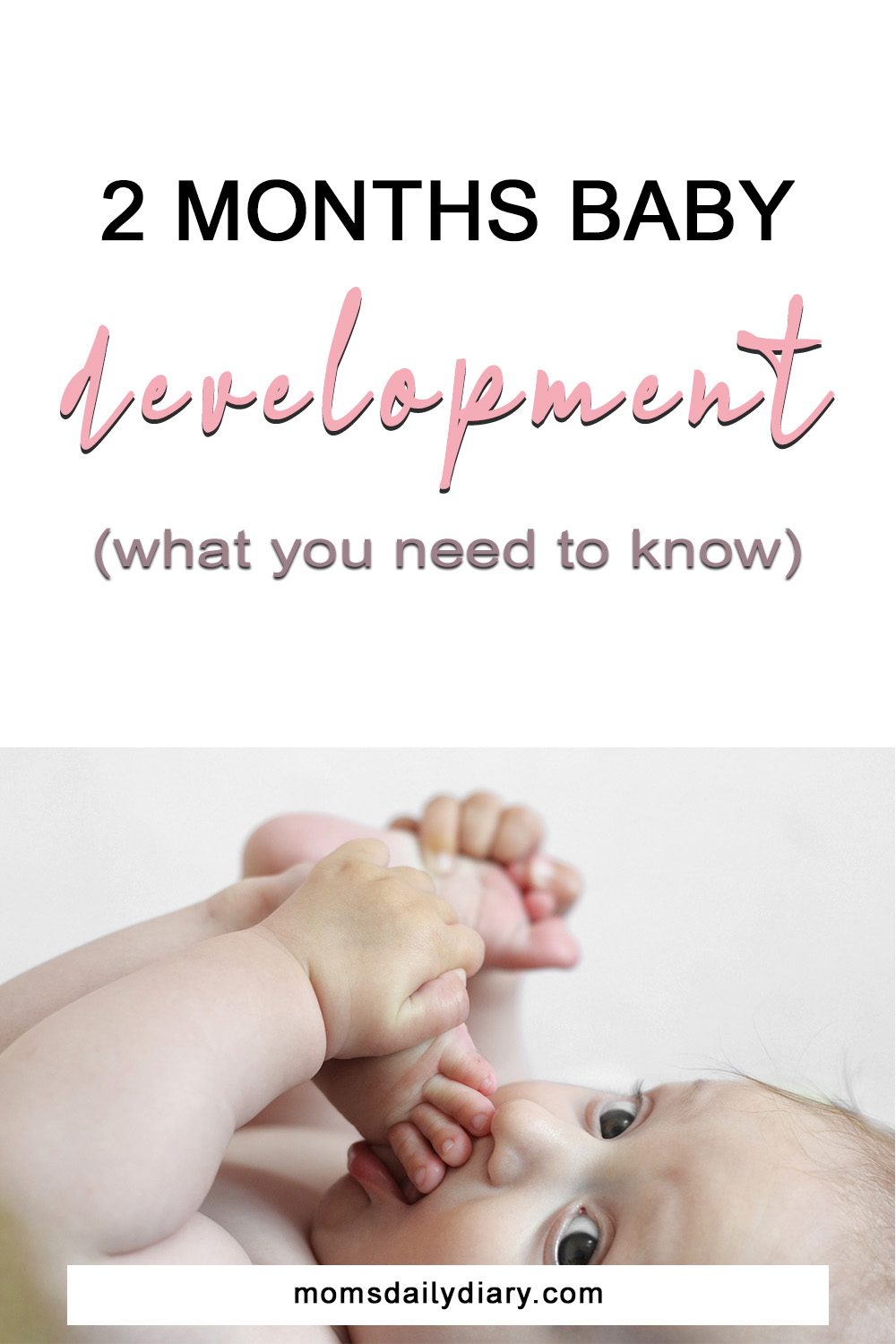
Please remember that all babies develop at different rates. Therefore, the developmental milestones listed below are intended as a guide only. If you’re concerned about your baby’s development, please contact your baby’s healthcare provider.
Congrats! You’re officially out of the newborn phase. However, don’t hurry to pick a college just yet. There are still many important milestones you need to cover first.
And here are those that concern the 2 months baby development:
- Posterior fontanelle closes. The posterior fontanelle is the soft spot on your baby’s head that their doctor should look at every check-up. It usually closes when they are two or three months old.
- Hold their head more stable. Your baby’s neck muscles are getting stronger by the day. Thus, they should be able to hold their head up for longer periods of time during tummy time and while you hold them in a standing position. Still, it is normal for their head to start joggling after it was up for a while.
- First smile. If your baby hasn’t started smiling at you by now, they should be able to greet you with big warm smiles soon enough.
- Coos. Soon after the smiles, come the coos also. You should be able to hear them when they look at you, smile, and try to “talk” to you. Keep talking to them as this is setting the basis for their language development further on.
- React to familiar faces. Your baby should also begin to recognise you, your partner and other faces from their close surrounding. They may respond with smiles and coos when they’re happy to see you around.
When should you be concerned?
If your baby cannot hold their head up for a while, doesn’t show any signs of facial recognition, like getting excited when they see you or doesn’t react to sudden loud noises, you may want to contact your baby’s healthcare provider.
